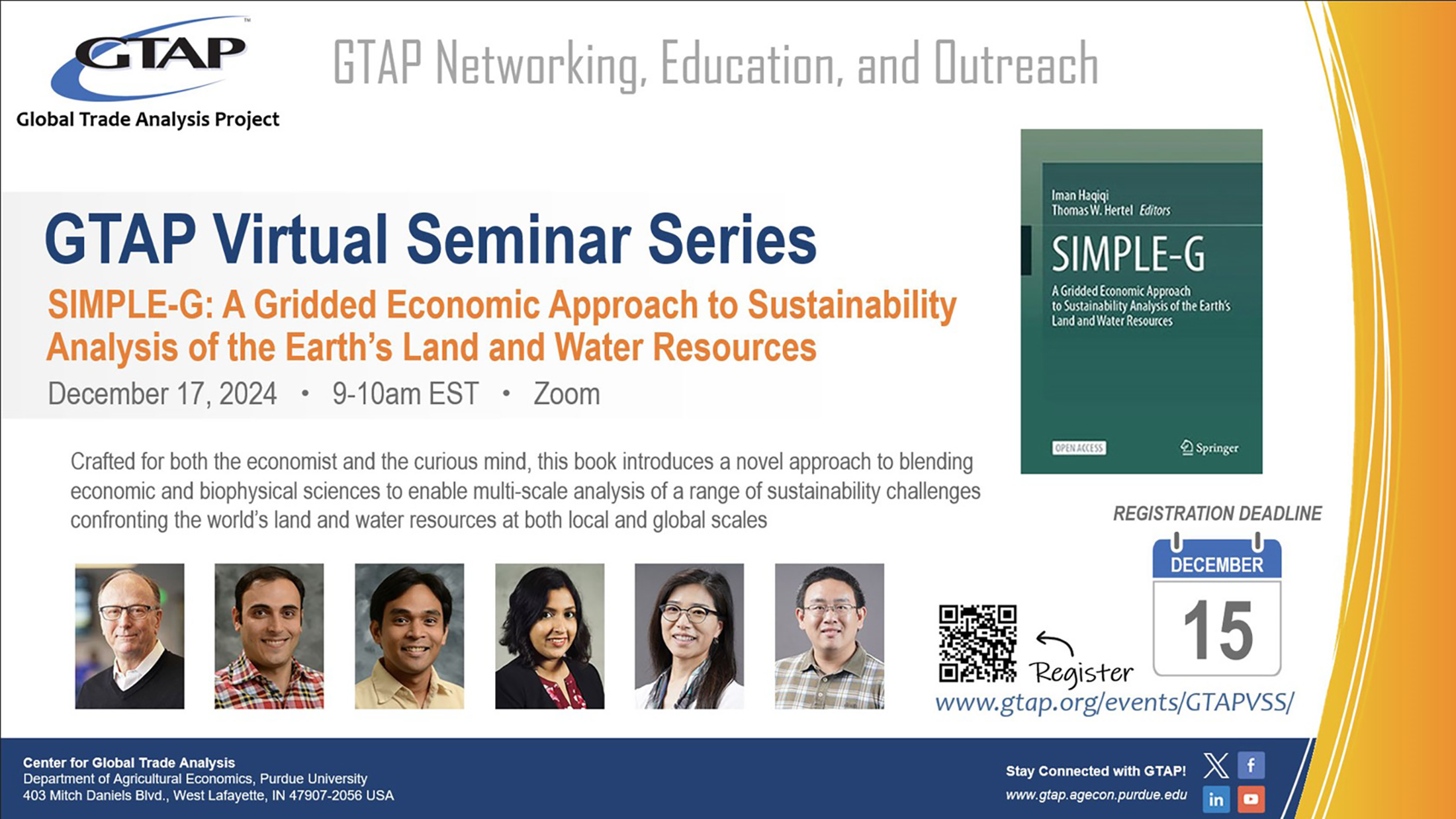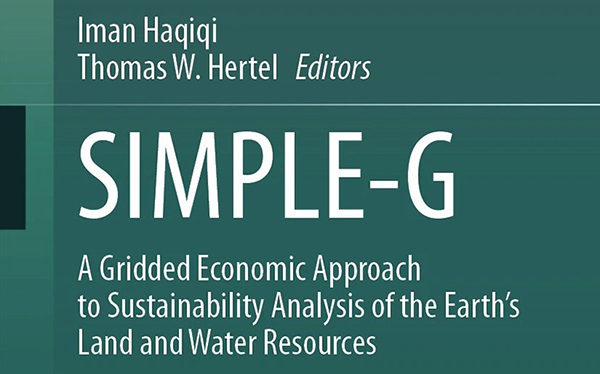GLASSNET’s impact on key stakeholders will make a difference in achieving the SDGs. Our network has the potential to provide decision makers from a wide-array of areas with the data needed to properly assess actions that will affect the environment, the economy and local communities.
Learn more about GLASSNETFeatured Seminar

REGISTER HERE
GTAP Virtual Seminar Series:
SIMPLE-G: A Gridded Economic Approach to Sustainability Analysis of the Earth's Land and Water Resources
December 17 (register by December 15)
9:00 - 10:00 AM US Eastern Standard Time, UTC-5
Featured Open-Access Book Release

Crafted for both the economist and the curious mind, this book introduces a novel approach to blending economic and biophysical sciences to enable gridded, multi-scale analysis of a range of sustainability challenges confronting the world’s land and water resources at both local and global scales.
This book offers:
- Innovative methodologies - a simplified yet powerful gridded economic model for geospatial analysis of the interactions between economic systems and the environment
- Case study applications that highlight practical applications of these ideas in real-world scenarios including: land and water use, labor markets, agricultural production, international trade, food consumption, food security, and environmental pollutions
- Tools for policy analysis aimed at solving critical challenges related to land use, conservation policy, water management, and sustainable development
Authors invite you to discover more and join the growing community of readers who are already exploring this exciting new work
